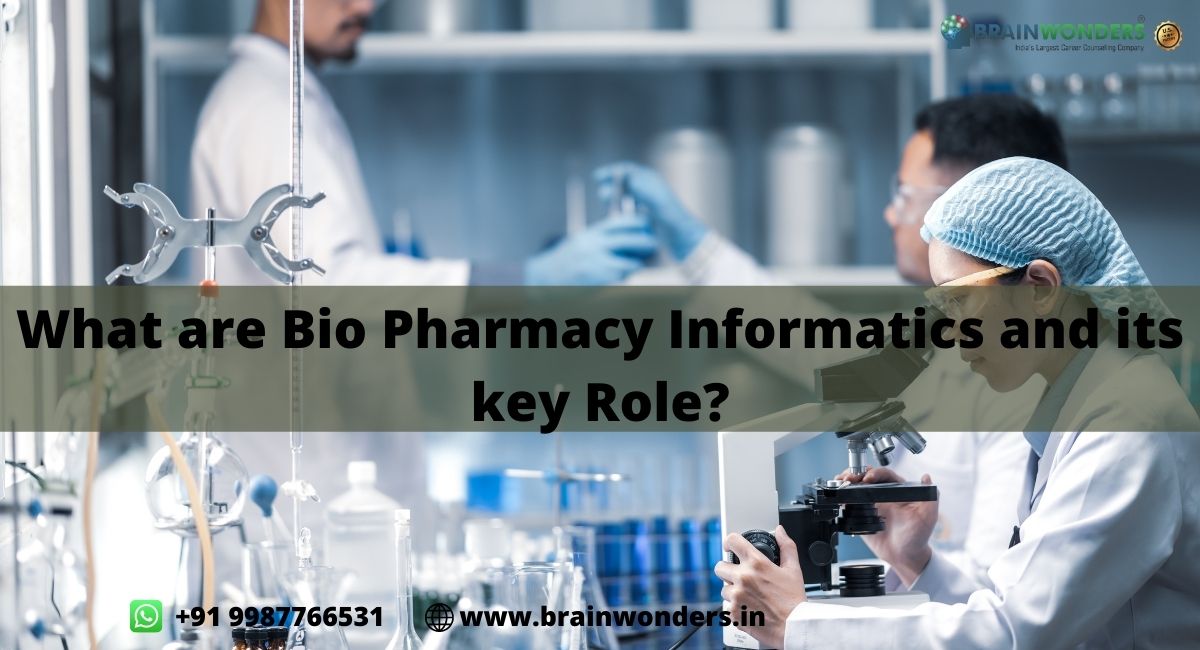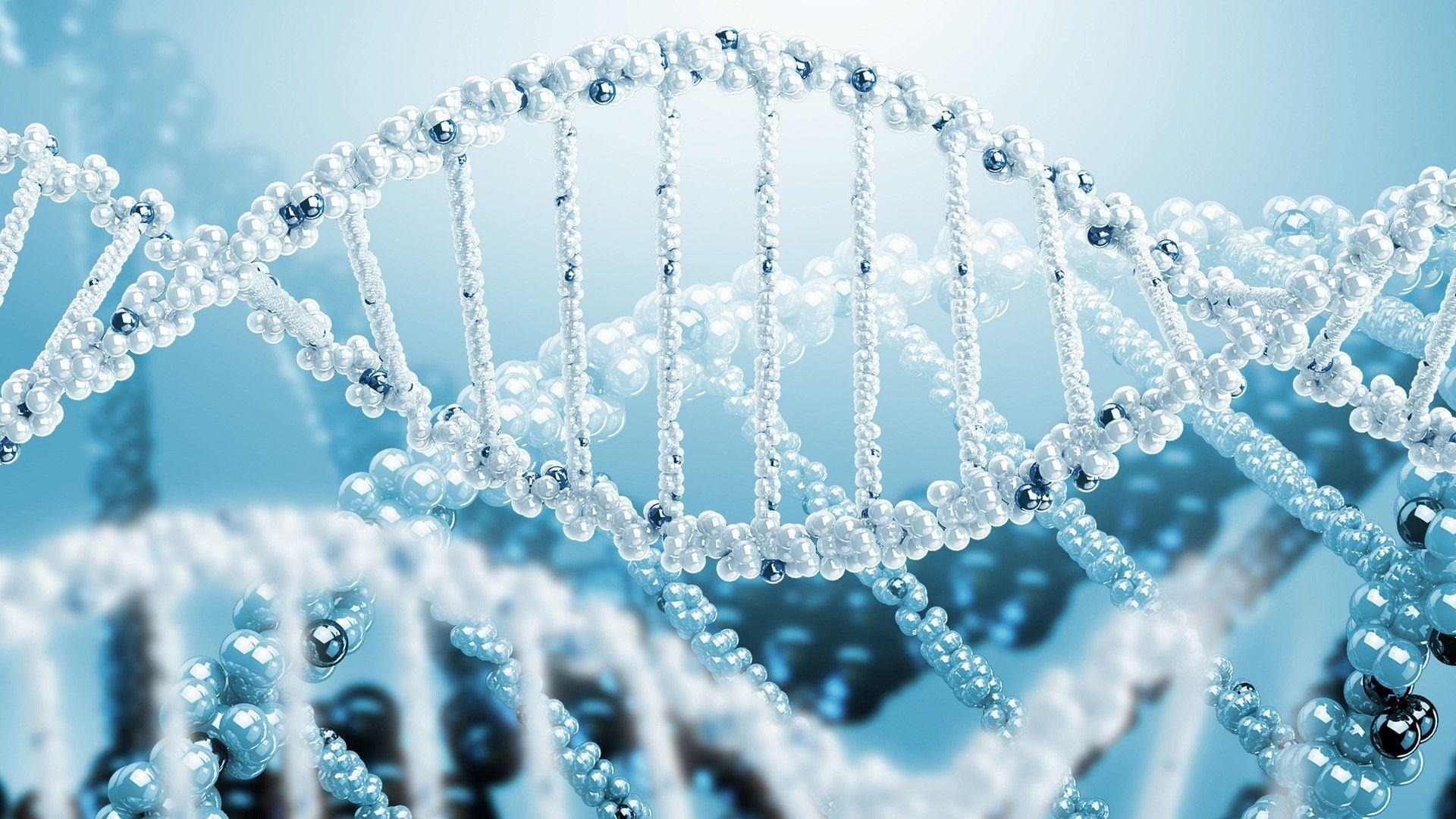

We have a database of over 11,000 colleges all over India.
Connect with us to find your perfect fit!
Blog
16 November,2021 | By Brainwonders

The American Society of Health-System Pharmacists defines pharmacy informatics as the integration and application of knowledge, information, technology, data, and automation in the medication-use process. The technique aims to improve medication administration efficiency and accuracy while streamlining patient care and outcomes.
Pharmacy informatics is being utilised to replace paper-and-pen prescriptions to provide better precision and clarity for pharmaceutical suppliers, often in conjunction with the usage of electronic health records (EHR). Although not flawless, this technological approach has quickly shown to be an excellent tool for preventing errors, streamlining operations, and sharing information, among other things.

In today's healthcare system, informatics and internet technologies are becoming increasingly prevalent. The way health-related information is transmitted and accessible through the internet has changed since the advent of the internet. Not only for healthcare professionals but also for patients, who can use the internet to look for drug-related and other health-related information, the internet is fast rising in relevance. Pharmacy informatics is the study, innovation, and implementation of a field that integrates technology with any aspect of drug administration, from basic sciences through the clinical application of pharmaceuticals in people and communities. Informatics is the nexus of people, information, and technology, and is commonly defined as "the use of computers to manage data and information." Included are pharmacy technologies that are used in the preparation, delivery, and management of drugs in healthcare delivery systems. Pharmacoinformatics has a wide range of applications in the healthcare industry. In the oncology environment, these applications play a significant role in lowering DRPs. Studies on the use of clinical decision support systems, e-prescribing, and drug-order entry have demonstrated that they can help with medication errors, as well as the prevention and management of chronic diseases.
Learn More: The Importance of Public Speaking Skills and 5 Techniques for Improving Them.

The use of computer technology to handle, manipulate, and interpret massive amounts of biological data is a speciality of researchers. Bioinformatics is a new multidisciplinary profession that has exploded in popularity since the Human Genome Project was published. Its goal is to analyse genetic data in order to further gene-based research and find medicinal solutions. Bioinformatics researchers construct three-dimensional models to test the efficacy of new medications using computational biology.
BIOINFORMATICS: Bioinformatics is a field that combines biology and computer science. Any computational techniques and procedures used to manage, analyse, and manipulate massive volumes of biological data are included in this discipline. Bioinformatics is made up of three main components:
The term "bioinformatics" first appeared in the 1990s, and it was initially used to refer to the management and analysis of DNA, RNA, and protein sequence data. Since the 1960s, computational tools for sequence analysis have been available, but it was a niche interest until advances in sequencing technology resulted in a rapid increase in the number of sequences stored in databases like GenBank. Many other sorts of biological data, such as protein shapes, gene expression profiles, and protein interactions, have since been included in the phrase.
IT is a multidisciplinary field dedicated to the development of methodologies and software tools for analysing biological data. Bioinformatics is an interdisciplinary discipline of study that analyses and interprets biological data by combining computer science, statistics, mathematics, and engineering.
Read More: Scope of Psychology in India, Courses & Career
There are numerous examples of how pharmacy informatics can be used effectively. The Cleveland Clinic, for example, has used technology to improve the performance of its smart pumps. The clinic employed informatics to better programme its alert alarms while lowering the chance of high-risk medication infusion pump programming errors. These drugs have been configured to run as primary infusions rather than secondary infusions in the clinic's pumps. Its smart pumps also limit the use of secondary drugs in conjunction with high-risk pharmaceuticals.
To gain better control over prescriptions for controlled medications, the Veterans Administration uses its Computerized Prescriber Order Entry (CPOE) systems. Controlled medications must be prescribed using its system, which needs two-factor authentication.
Biological and medical laboratories currently use procedures that generate extraordinarily massive data sets that cannot be examined by hand, such as sequencing human genomes. As a result, bioinformatics is required for modern biological and medical research and development.
Biology, chemistry, pharmacology, medicine, and agriculture will all benefit from this technology in the future. Bioinformatics also plays a significant part in biomedical research. The field of genetic illnesses and medical genomics is quickly expanding, and bioinformatics technologies are critical to the future of customised medicine.
Bioinformatics is an emerging scientific area and a rapidly rising career field. This hands-on course focuses on using existing bioinformatic tools - primarily web-based applications and databases - to access a variety of data in order to answer issues relevant to the typical scientist. For students in various streams, there are a variety of job options accessible. Structural analyst, Scientific Curator, Database programmer, Gene Analyst, Computational biologist, Protein Analyst, Phylogenitist, Research Scientist / Associate, Bio-statistician, Bioinformatics software developer, Network Administrator / Analyst, Molecular Modeler, Bio-mechanics.
The use of computer technology to handle, manipulate, and interpret massive amounts of biological data is a speciality of researchers. Bioinformatics is a new multidisciplinary profession that has exploded in popularity since the Human Genome Project was published. Its goal is to analyse genetic data in order to further gene-based research and find medicinal solutions. Bioinformatics researchers construct three-dimensional models to test the efficacy of new medications using computational biology.
Hence, if you are interested in bio pharmacy informatics, you can take help of the right career counselling and explore many other opportunities.
Fill the form to know how!